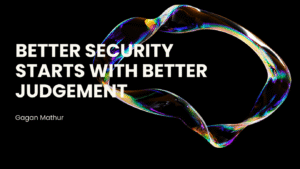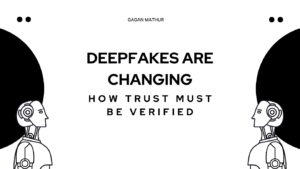In last three episodes, there were 3 pivotal moments:
🔸 “A Question of Trust” – one misstep in reliability could shake an otherwise long-standing relationship
🔸How poor communication and lack of intimacy led to an unspoken wall between colleagues in “The Silent Barrier”
🔸How self-orientation—whether perceived or real—could overshadow even the best intentions in “The Trust That Was Almost Lost”
Each story revealed an underlying theme: trust cannot be seen as a singularity but rather as some blend of elements that create it or destroy it. How do we unknot this blend and turn it into something that truly lasts?
The Trust Equation tells us the secret:
Trust = (C➕R➕I) ➗ S
Where,
• C= Credibility: “I can trust what they say”
• R = Reliability: “I can trust them to deliver”
• I = Intimacy: “I feel safe sharing with them”
• S = Self-Orientation: “I trust their motives”
Let’s Break It Down:
1️⃣Credibility🗣️
Credibility is about what you say. Speak with conviction, do your research and never be afraid to admit when you don’t know something. People trust those who demonstrate knowledge and honesty
2️⃣Reliability📅
Consistency forms reliability. Do what you say you’re going to do. Show up, be on time; keep your promises. Come across and keep the deadline: each and every time
3️⃣Intimacy🤝
The word “intimacy” derives from the connotation of an emotional feeling. Vulnerability is essential here; open-hearted. Show curiosity with your questions and truly listen, provide room for them to say it: your fears and issues
4️⃣Self-Orientation🚨
This is the denominator—and the biggest threat to trust. If others sense that you’re overly focused on your own interests, trust will plummet. Shift your focus to their needs, goals, and challenges to foster genuine connection
Why It Matters🏆
Trust is not a “nice-to-have” in leadership; it is the foundation of all relationships. In fact, trust provides the basis for many skills of leadership, including coaching, influencing, inspiring, delegating, and developing stakeholder relationships
A strong sense of trust maximizes your ability to inspire, lead, and deliver. It turns transactional interactions into meaningful connections so that you can unlock higher outcomes for your teams and organizations.
Reflect and Act💡
Think about your own experiences. Which element of trust do you need to strengthen?
When you master the art of balancing credibility, reliability, intimacy, and self-orientation, you don’t just become a leader. You become the leader people trust.
What’s your Trust Equation?





